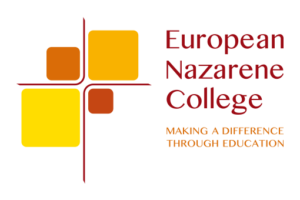Description
This programme consists of 180 ECTS, providing a deeper understanding of the discipline of theology as applied to the context of the practice of Christian ministry in contemporary society. Students will engage in practical activities designed to develop ministerial skills as well as reflect critically on what they are learning through their experience and engagement with contemporary issues of society.
The Advanced Diploma programme is accredited by the European Council for Theological Education (ECTE) meeting the requirements of level 6, and corresponds to a First Cycle qualification in the QF-EHEA. This programme corresponds to the Bachelor level in the ICETE Qualification Framework.
This programme may not be offered at all Learning Centres. Contact the specific Learning Centre for availability.
Programme Outcomes
Students who graduate with the Advanced Diploma in Applied Theology will have:
- a deeper knowledge of Scripture (CN1)* and of the Christian faith, especially from a Wesleyan perspective (CN2)*, and a basic knowledge of the history of the church (CN3)*.
- a clear understanding of, and vision for, the mission of the Church (CN3), and the church’s responsibility to the world and its people (CT3)*.
- a clear understanding of, and vision for, the mission of the Church (CN3), and the church’s responsibility to the world and its people (CT3)*.
- a thorough knowledge necessary for effective ministry (CN4)* and for working with people (CN5)*.
- the skills to interpret Scripture (CP1)* and communicate effectively (CT1)* within different cultural contexts (CT2)*.
- the skills to communicate clearly with people (CP2)*, provide leadership (CP3)*, and provide pastoral care to people (CP4)*.
- the skills to apply Christian understanding to their personal lives (CH1)*.
- grown in their pursuit of holy living in all its various dimensions of daily life (CT4)* and personhood (CH2)* through acquaintance with different spiritual disciplines (CH4)*.
- an increased awareness of who they are as persons (CH5)* and as servants involved in God’s mission in the world (CH3)*.
- The ability to critically reflect and engage with contemporary issues in society, Bible and Theology. (CP5, CP6).
- The ability to put into practice their learning (CP4), reflecting critically on the outcomes of their experience (CP5, CP6).
Note: The curriculum is designed with the understanding that no educational programme is complete, but needs to be seen as laying a foundation for lifelong learning.
* The abbreviations refer to the intended educational outcomes, as described on Section IV and following of the Academic Catalogue.
Minimum Requirements
- Only courses with passing grades will count.
- The student must complete 180 ECTS, distributed as follows:
Cluster |
Course |
ECTS |
| A. Bible 35 ECTS |
Introduction to the Old Testament Introduction to the New Testament Foundations for Biblical Studies Pentateuch and/or Old Testament Prophets Synoptic Gospels and/or Pauline Literature Cluster Electives |
5 5 5 5 5 10 |
| B. Theology, Tradition, and Identity 29 ECTS |
Introduction to Theology Holiness and Identity Christian Doctrines Nazarene History and Polity Church History Christian Ethics 2 Cluster Electives |
3 3 6 3 5 3 6 |
| C. God’s Mission, the Church, Vocation 30 ECTS |
God’s Mission and the Church Vocation and Personal Ministry Spiritual Formation Mentoring Evangelism and the Church Intercultural Missions Faith Development in the Local Congregation Christian Worship The Holistic Wellbeing of the Minister 2 Cluster Electives |
3 2 3 3 3 4 3 3 3 3 |
| D. Ministerial Skills 29 ECTS |
Elective Courses: Preaching, Pastoral Care and Counselling; Foundations for Youth Ministry; Church Leadership. Practicum Internship Ministry Integration Summative Review Electives: Additional Practicum(s)/Intership(s); Theological Reflections |
15 1 3 2 5 2 |
| E. Academic Skills and General Studies 13 ECTS |
EuNC Orientation Academic Skills 1 Academic Skills 2 Human Growth and Development Interpersonal Communication 1 Cluster Elective |
0 3 2 3 2 3 |
| General Electives | (see Course Descriptions) | 44 |
| Total | 180 |
